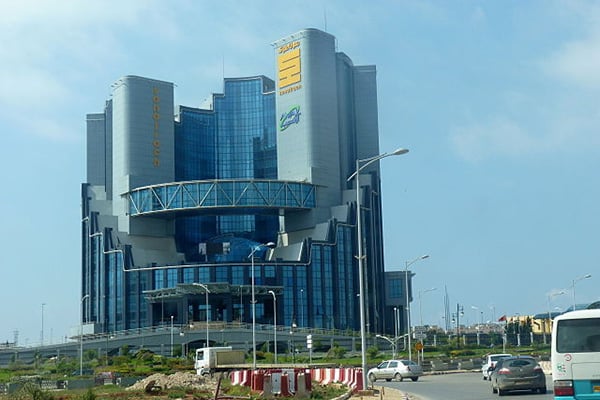
On 20 November 2018, the CEO of Sonatrach Abdelmoumen Ould Kaddour visited Spain to celebrate the renewal of gas contracts with the Spanish energy company Naturgy. He also took the opportunity to present the Algerian oil and gas national company’s vision for 2030 at the Elcano Royal Institute. This was Mr. Kaddour’s second time at the institute, which he first visited on 16 May 2017, shortly after he was named CEO. In the 19 months that he has headed the company, Mr. Kaddour has embarked on a wide-ranging set of reforms that have significantly improved Sonatrach’s international reputation and raised expectations of an “energy spring” taking place in Algeria. His visit to Spain marked an important milestone in this process, given that Algeria represents 54% of Spanish gas imports this year.
Hoy ha visitado el Instituto Abdelmoumen Ould Kaddour, CEO de Sonatrach, para hablar de nuevos projectos y las perspectivas de la energía argelina. #DesayunosElcano pic.twitter.com/hKNCt127ef
— Real Instituto Elcano (@rielcano) November 20, 2018
Mr Kaddour, Sonatrach’s CEO, Thanks @rielcano for a nice discussion this morning and proposes teamworking with Spain in Europe: we’re ready to start!! pic.twitter.com/OdUxtiEWAK
— Gonzalo Escribano (@g_escribano) November 20, 2018
As we highlighted in a recent paper, Mr. Kaddour’s appointment as CEO was a conscious decision by the Algerian government to end Sonatrach’s state of paralysis in the years prior to 2017. Within his first year, Mr. Kaddour had closed 80% of all open law suits between Sonatrach and international energy companies. He then signed several new international contracts and extended existing ones. Many of these are with the French energy company Total, but other examples include that with Cepsa regarding the Rhoude el Krouf oil field and that with both Total and Repsol to extend the exploitation of the Tin Fouyé Tabankort gas field. Mr. Kaddour is also making Sonatrach’s contracts more flexible, a measure that European companies and the European Commission have long been advocating and that current gas market realities have made almost inevitable.
Through these measures, Mr. Kaddour has created the expectation that conditions for doing business in Algeria’s energy sector will finally improve. Measures such as the 49/51 rule –which requires majority Algerian ownership of all new foreign ventures– and the windfall tax on excess profits, together with certain administrative barriers, have long been seen as deterrents to foreign investment. Mr. Kaddour is working closely with Arezki Hocini, head of Alnaft, to soften these conditions. Although it is unlikely that the 49/51 rule will be changed, Sonatrach has launched a round of consultations to determine what international companies would like to see in a long-awaited reformed Hydrocarbon Law. While the impact of these consultations on the new law –which is unlikely to be reformed before Algerian presidential elections take place in 2019– remains unclear, they are still a step in the right direction.
Mr. Kaddour’s presentation at the Elcano Royal Institute made it clear that he intends to continue following this internationally-oriented route. His main aim is to make Sonatrach one of the top 5 national energy companies in the world. The company has ambitious plans to diversify and increase its local production so as to improve its capacity to export energy, mainly to Europe. Its strategic aims for 2030 include the development of offshore exploration, the exploitation of Algeria’s vast non-conventional resources and the harnessing of Algeria’s solar energy. By then, the company aims to be producing 20 billion cubic metres of non-conventional resources and deploying 1,3 gigawatts of solar energy. This increase in solar capacity is especially significant, as it will enable Sonatrach to export more oil and gas by reducing their use in its facilities. Parallel to this, Sonatrach plans on expanding its exploration and production activities abroad.
All of these are welcome developments, but there are external factors that may hinder their progress. The main obstacle is France’s reticence to build the MidCat pipeline, which would allow Algerian gas to reach the European market beyond the Pyrenees. Without this limitation, Algeria could work towards positioning itself as an alternative to Russian gas. These ambitious plans face several challenges, as we highlighted in the paper mentioned above. In spite of this, the new Sonatrach team’s reformist spirit opens a window of opportunity to establish a closer cooperation framework between the EU and Algeria, Europe’s third gas provider after Russia and Norway.


